Case report: a Chinese girl like atypical Rubinstein–Taybi syndrome caused by a novel heterozygous mutation of the EP300 gene, BMC Medical Genomics
Por um escritor misterioso
Last updated 31 março 2025
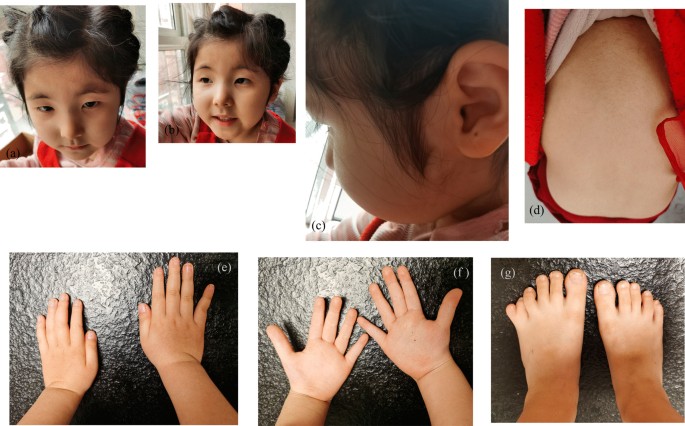
Background Rubinstein–Taybi syndrome (RSTS) is an extremely rare autosomal dominant inheritable disorder caused by CREBBP and EP300 mutations, while atypical RSTS harbouring variant from the same genes but not obvious resembling RSTS. There are only a few cases of Menke–Hennekam syndrome (MKHK) with variant of exon 30 or 31 of CREBBP or EP300 gene have been reported that not resembling RSTS recent years. Atypical RSTS cannot be accurately classified as MKHK, nor is it easy to identify the obvious classic characteristics of RSTS. The clinical manifestations and genetic variation of atypical RSTS are not fully understood. Case presentation We present a Chinese core family with a girl had recurrent respiratory tract infection and developmental delay. The patient with language and motor mild development retardation, she has slight abnormal facial features, mild hirsutism and post-axial hexadactylia of left foot. Her cisterna magna is enlarged to connect with the fourth ventricle, and the ventricular system is enlarged. She has a malacia beside the posterior horn of the left lateral ventricle. The patient has primary low immunoglobulin G and A, but her level of immunoglobulin M content in blood is normal. The patient harbors a novel heterozygous frameshift variant of c.2499dupG in exon 14 of EP300 gene, that it is proved to de novo origin. The mutation is judged to be a pathogenic mutation, and it has high-grade pathogenic evidence. Conclusion The clinical and genetic evaluation of this case corroborates that clinical features caused by c.2499dupG in exon 14 of EP300 are less marked than RSTS2 patient although it is difficult to establish an accurate genotype–phenotype correlation. Our additional case also helps to deepen the clinical and genetic spectrum in this disorder. The case provides a novel mutation of EP300 and enriches the phenotypes related with the gene. We have contributed new variation and disease information for guardians and doctors to broaden the knowledge about EP300-RSTS genotype and phenotype, this may contribute to ameliorate the health management of patients and improve the genetic counseling to the families.

Distribution of EP300 domains and mutations in our patient (in red
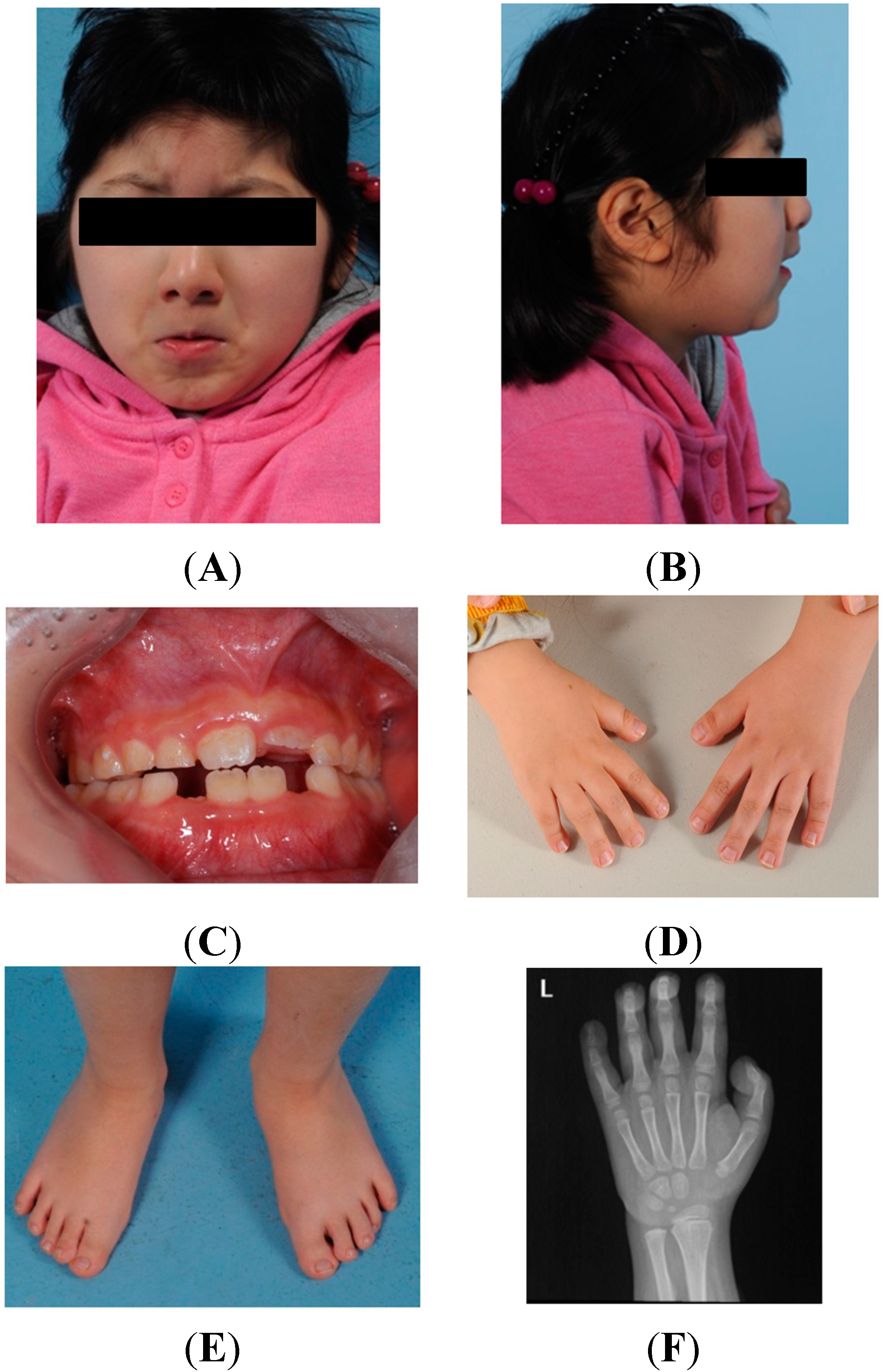
IJMS, Free Full-Text
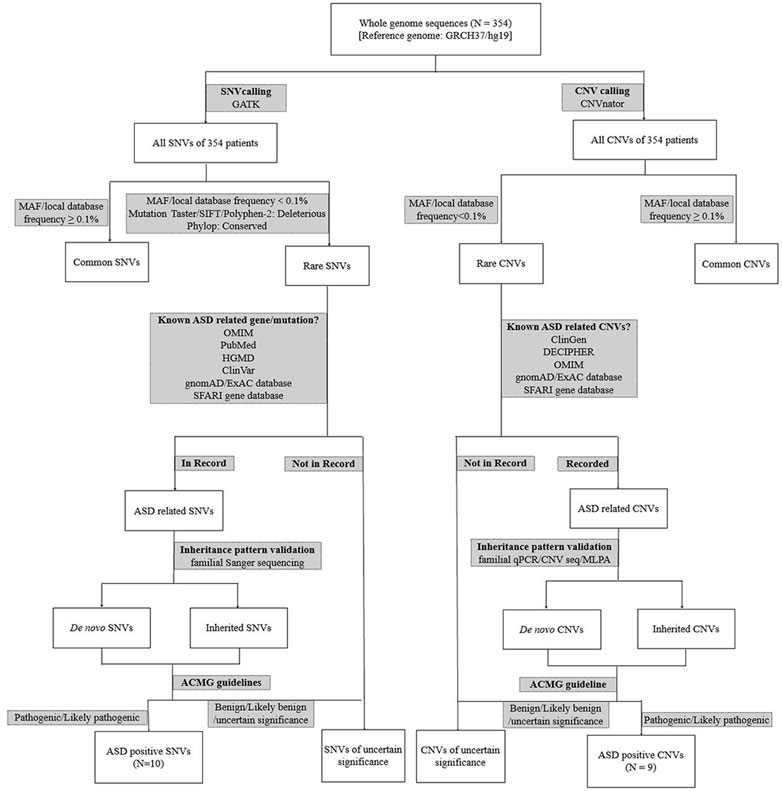
Frontiers Genetic diagnostic yields of 354 Chinese ASD children

EP300‐related Rubinstein–Taybi syndrome: Highlighted rare

Genetic Heterogeneity in Rubinstein-Taybi Syndrome: Mutations in

Distribution of CREBBP domains and mutations in our patient (in
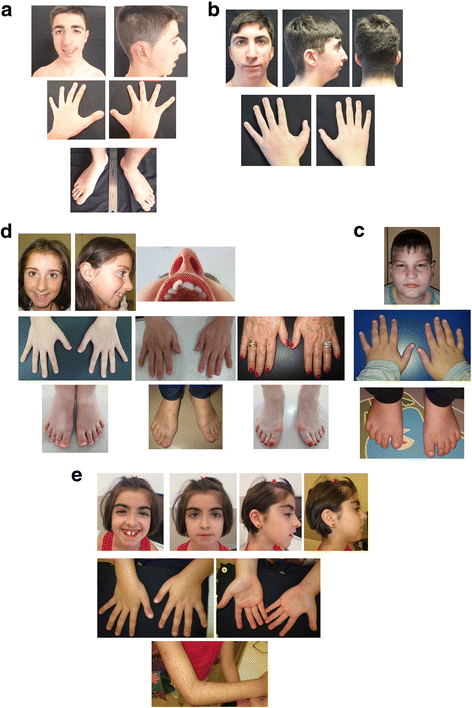
Rubinstein-Taybi 2 associated to novel EP300 mutations: deepening
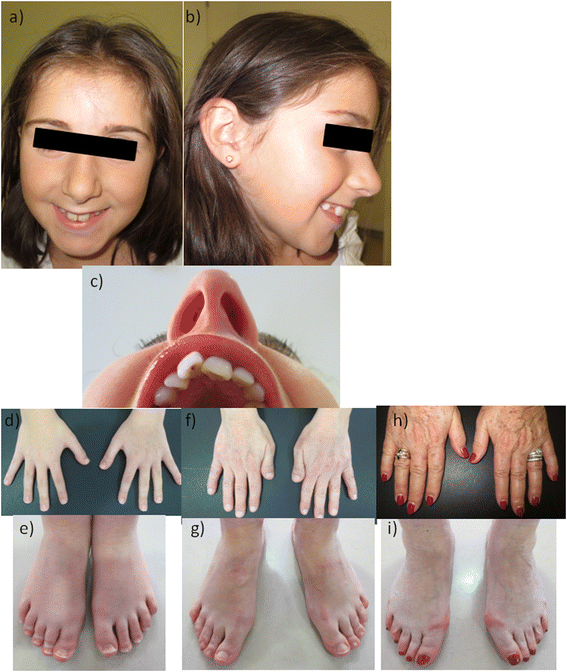
First case report of inherited Rubinstein-Taybi syndrome

TTC5 syndrome: Clinical and molecular spectrum of a severe and
Recomendado para você
-
 Rubinstein–Taybi syndrome - Wikipedia31 março 2025
Rubinstein–Taybi syndrome - Wikipedia31 março 2025 -
 Rubinstein-Taybi Syndrome OMIM# 180849 - FDNA™31 março 2025
Rubinstein-Taybi Syndrome OMIM# 180849 - FDNA™31 março 2025 -
 Ocular symptoms in patients with Rubinstein-Taybi syndrome; 117 out of31 março 2025
Ocular symptoms in patients with Rubinstein-Taybi syndrome; 117 out of31 março 2025 -
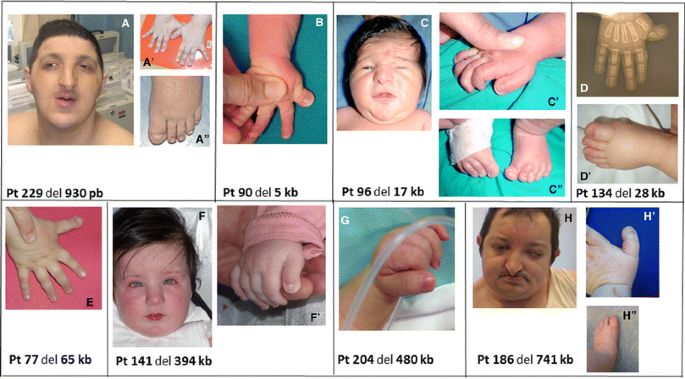 Characterization of 14 novel deletions underlying Rubinstein–Taybi syndrome: an update of the CREBBP deletion repertoire31 março 2025
Characterization of 14 novel deletions underlying Rubinstein–Taybi syndrome: an update of the CREBBP deletion repertoire31 março 2025 -
 Rubinstein-Taybi Syndrome - an overview31 março 2025
Rubinstein-Taybi Syndrome - an overview31 março 2025 -
 Clinical and molecular findings of the six patients with Rubinstein31 março 2025
Clinical and molecular findings of the six patients with Rubinstein31 março 2025 -
 PDF) Identification of a novel de novo mutation of CREBBP in a patient with Rubinstein-Taybi syndrome by targeted next-generation sequencing: A case report31 março 2025
PDF) Identification of a novel de novo mutation of CREBBP in a patient with Rubinstein-Taybi syndrome by targeted next-generation sequencing: A case report31 março 2025 -
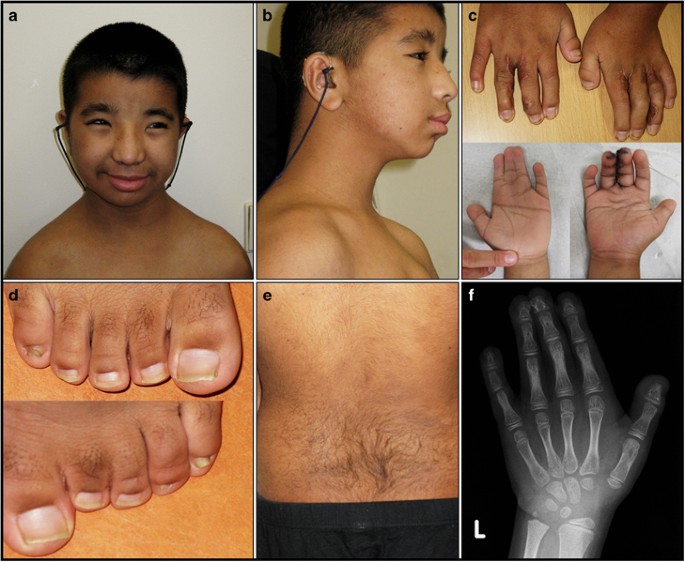 Mosaic CREBBP mutation causes overlapping clinical features of Rubinstein– Taybi and Filippi syndromes31 março 2025
Mosaic CREBBP mutation causes overlapping clinical features of Rubinstein– Taybi and Filippi syndromes31 março 2025 -
 Expanding the phenotype associated to KMT2A variants: overlapping clinical signs between Wiedemann–Steiner and Rubinstein–Taybi syndromes31 março 2025
Expanding the phenotype associated to KMT2A variants: overlapping clinical signs between Wiedemann–Steiner and Rubinstein–Taybi syndromes31 março 2025 -
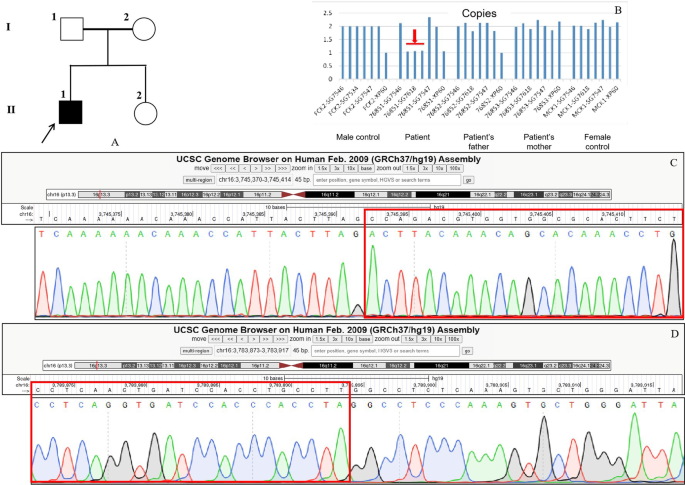 A novel CREBBP mutation and its phenotype in a case of Rubinstein31 março 2025
A novel CREBBP mutation and its phenotype in a case of Rubinstein31 março 2025
você pode gostar
-
 Chad Mureta Of App Empire Started His $6 Million App Business From31 março 2025
Chad Mureta Of App Empire Started His $6 Million App Business From31 março 2025 -
 One Piece” lidera Top 10 da Netflix no Brasil - POPline31 março 2025
One Piece” lidera Top 10 da Netflix no Brasil - POPline31 março 2025 -
CapCut_suki demon slayer31 março 2025
-
 Pokemon Scarlet and Violet post-game guide - Video Games on Sports Illustrated31 março 2025
Pokemon Scarlet and Violet post-game guide - Video Games on Sports Illustrated31 março 2025 -
Cifra Club - Frank Sinatra - Fly Me To The Moon31 março 2025
-
 Play FNF: Sunky And Sonic.EXE Sings Copy Cat game free online31 março 2025
Play FNF: Sunky And Sonic.EXE Sings Copy Cat game free online31 março 2025 -
 Schola Naturalis Philosophiae, en.wikipedia.org/wiki/Natura…31 março 2025
Schola Naturalis Philosophiae, en.wikipedia.org/wiki/Natura…31 março 2025 -
 GM Authority Careers31 março 2025
GM Authority Careers31 março 2025 -
 Chances of a season 2? : r/nagatoro31 março 2025
Chances of a season 2? : r/nagatoro31 março 2025 -
 Happy face Blue Rainbow Friends. Blue Roblox Rainbow Friends Characters, roblox, video game Essential T-Shirt for Sale by Mycutedesings-131 março 2025
Happy face Blue Rainbow Friends. Blue Roblox Rainbow Friends Characters, roblox, video game Essential T-Shirt for Sale by Mycutedesings-131 março 2025
